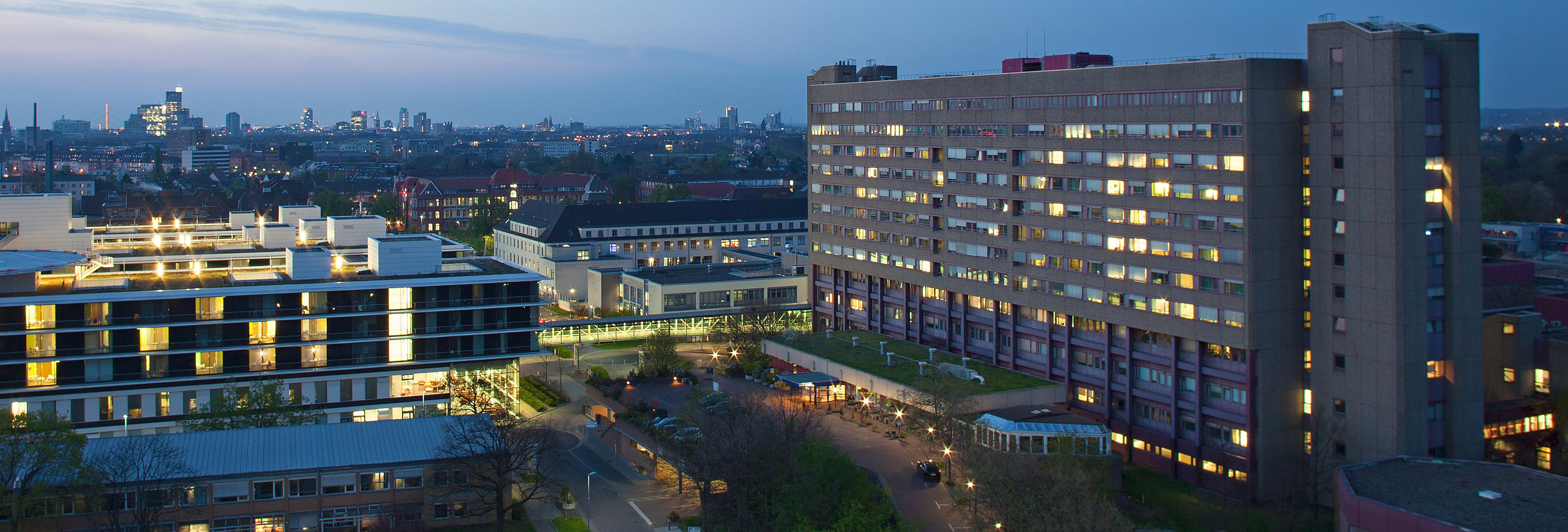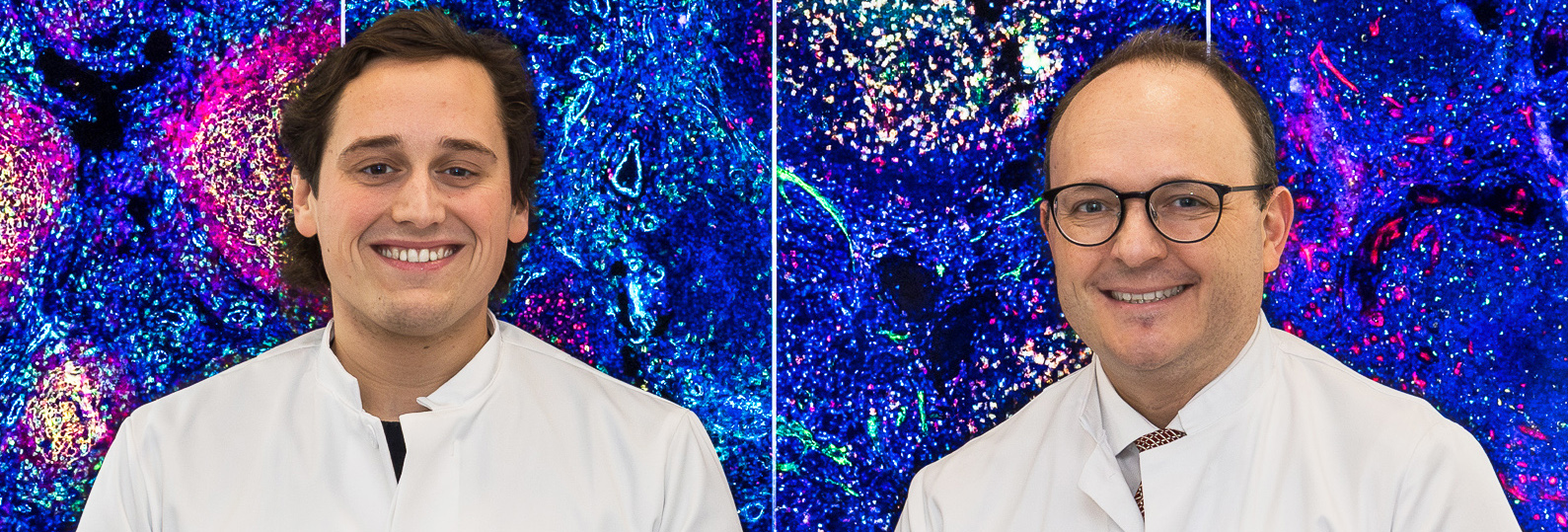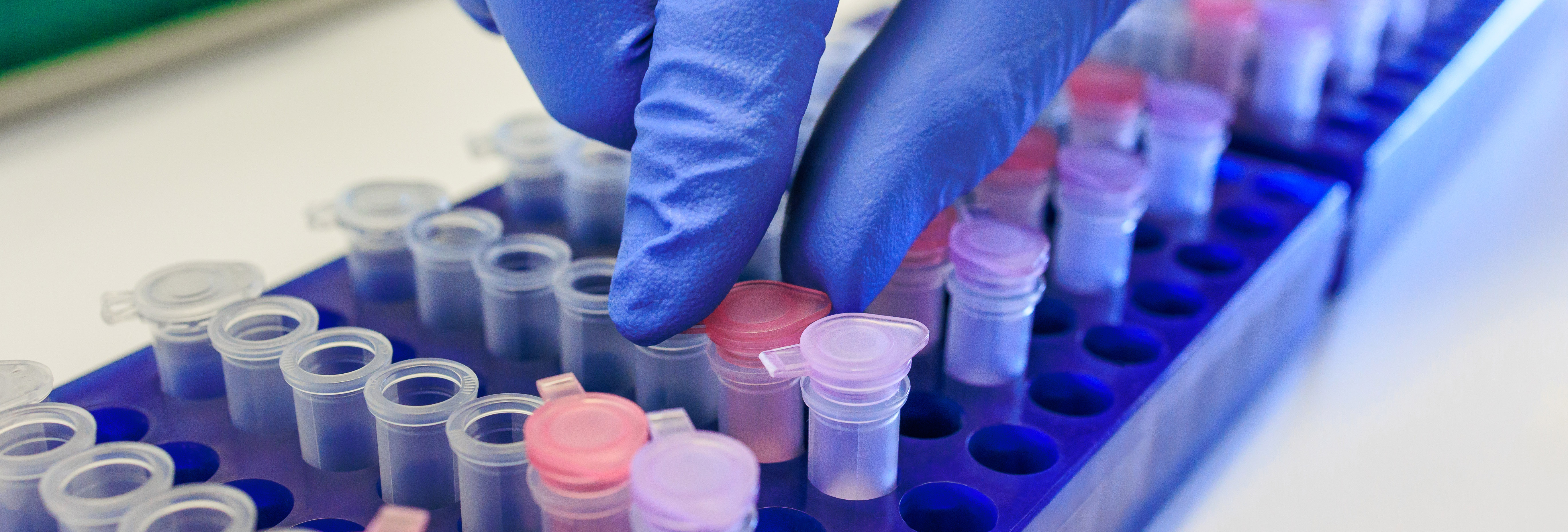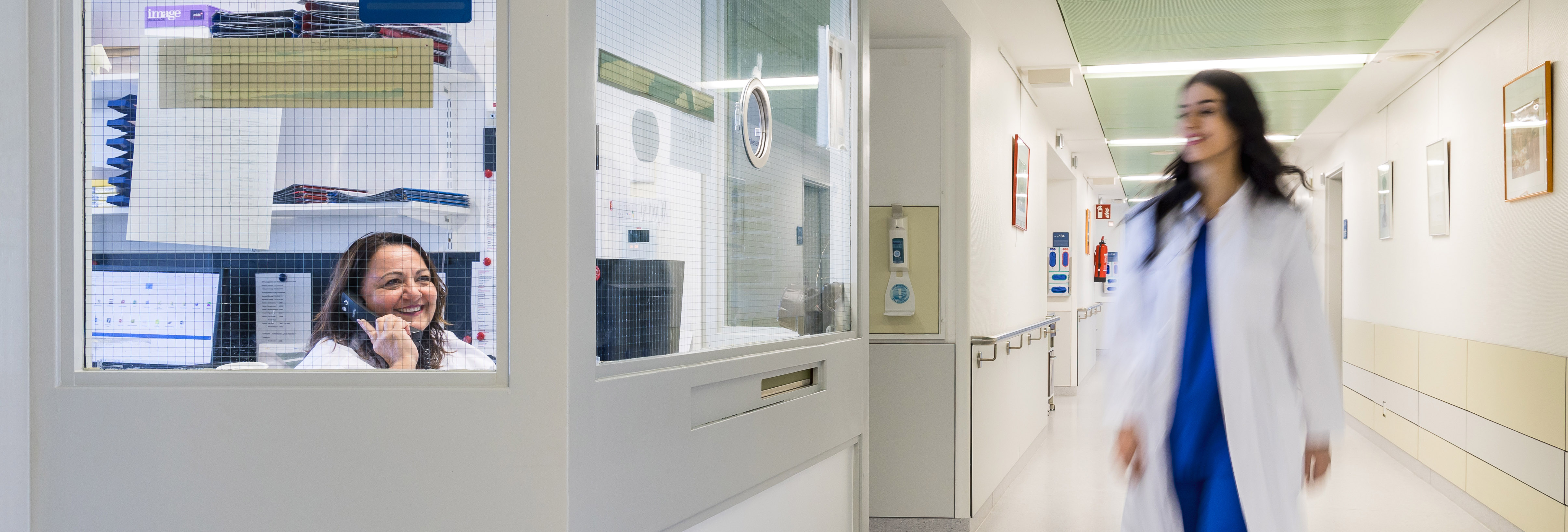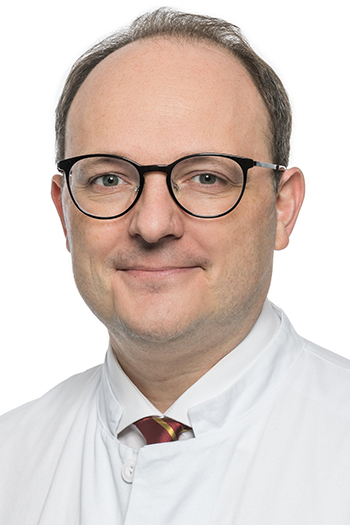Welcome to the Department of Hematology, Oncology, and Clinical Immunology
The Department of Hematology, Oncology, and Clinical Immunology provides care for people with blood disorders, cancer, and diseases of the immune system. We treat all types of hematological and oncological malignancies and inherited immunological disorders. A particular focus lies on patients with various forms of blood cancer, including leukemia and lymphoma, as well as selected solid tumors such as sarcomas and carcinomas of unknown primary (CUP).
The department’s research activities are closely linked to patient care. Our goal is to rapidly translate scientific discoveries into clinical practice. Through our research projects, many patients have the opportunity to participate early in innovative therapies, including access to new, not yet approved medications. In keeping with this tradition, we place the highest value on applying the latest scientific knowledge for the benefit of our patients.
Patient care and diagnostics
Systemic cancers such as leukemias and lymphomas are often difficult to diagnose. The Department of Hematology, Oncology, and Clinical Immunology maintains specialized laboratories for this purpose. In addition to the basic diagnostics of hematological diseases, a range of highly specialized diagnostic procedures for rare diseases is also utilized. Alongside the care of our own patients, our diagnostic laboratories also analyze samples from other hospitals and medical practices in the region. A particular focus of our laboratories is the diagnosis of acute leukemias, pre-leukemic conditions, and lymphomas. In addition to the classical microscopic evaluation of blood and bone marrow samples, modern immunocytological and molecular biological techniques are employed.
Molecular biological diagnostics, in particular, allow not only the creation of individualized therapy plans for each patient but also the precise and closely monitored tracking of disease progression. If standard chemotherapy — typically the first-line treatment for malignant hematologic diseases — proves ineffective, all forms of high-dose chemotherapy with stem cell transplantation as well as other cell therapy procedures, such as CAR-T cell therapy, are available. In stem cell transplantation, a distinction is made between autologous transplantation — where patients receive their own stem cells — and allogeneic transplantation — where the stem cells are provided by a related or unrelated donor. Although allogeneic transplantation carries a higher inherent risk, it often represents the only chance for a complete cure.
New therapeutic approaches, such as CAR-T cell therapy, are based on immunological concepts. In these therapies, the patient's own immune cells are extracted, genetically modified, and then specifically directed against leukemia or lymphoma cells. In some diseases caused by genetic alterations, gene therapy approaches also offer promising prospects for success.
Research
In addition to providing patient care, our department places a strong emphasis on research in the fields of hematologic and lymphatic neoplasms as well as immuno-oncology. Our research activities are closely intertwined with clinical practice, with the aim of rapidly and purposefully translating scientific discoveries into patient care. This approach allows many of our patients to benefit early from the latest research advances and to participate in innovative treatment options.
You can find more information about our current research projects here:Research and Science ǀ UKD
Key treatment areas
- Acute and chronic leukaemiae
- Malignant lymphomas
- Plasmocytomae
- Bronchial carcinomas
- Sarcomas
Key research areas
- Malignant lymphomas
- Myelodysplastic syndromes
- Plasmacytomae
- Chronic myelotic leukaemia
- Use of the non-myeloablative transplantation
- Clinical molecular biology
More information
Visit this site under: Klinik für Hämatologie, Onkologie und Klinische Immunologie



